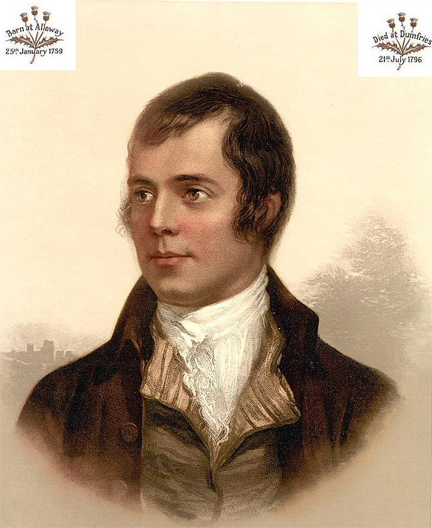Should auld acquaintance be forgot, and never brought to mind?
Should auld acquaintance be forgot, and auld lang syne?
Chorus : For auld lang syne, my jo, for auld lang syne
We’ll tak a cup o’ kindness yet, for auld lang syne.
And surely ye’ll be your pint-stowp! and surely I’ll be mine!
And we’ll tak a cup o’ kindness yet, for auld lang syne.
We twa hae run about the braes, and pu’d the gowans fine;
But we’ve wander’d mony a weary fit, sin auld lang syne
We twa haed paidl’d I’ the burn, frae morning sun till dine;
But seas between us braid hae roar’d sin auld lang syne.
And there’s a hand my trusty fiere ! And gie’s a hand o’ thine!
And we’ll tak a right gude-willy waught for auld lang syne.
Various versions of those words would have resounded all across the world last night, since the song Auld Lang Syne by Robert Burns has become the international anthem for the New Year and is sung or played everywhere on the stroke of twelve on Old Year’s Night. But how did a mere light-hearted poem in praise of drink achieve such prominence


